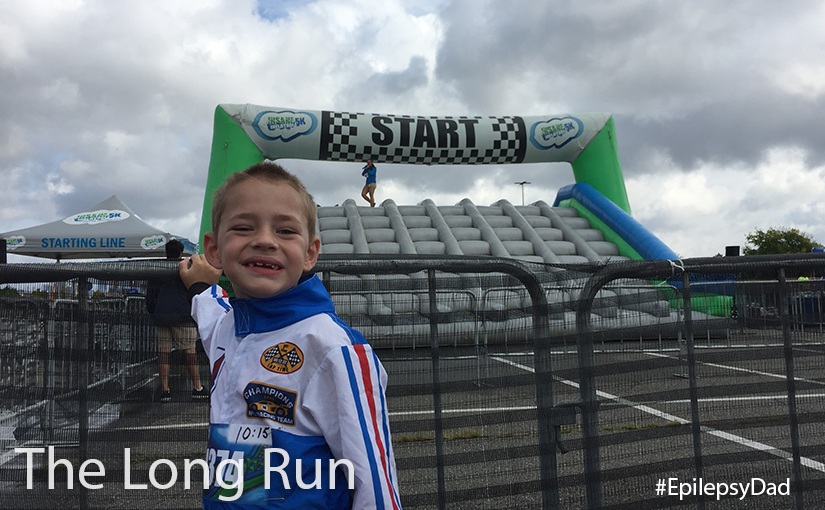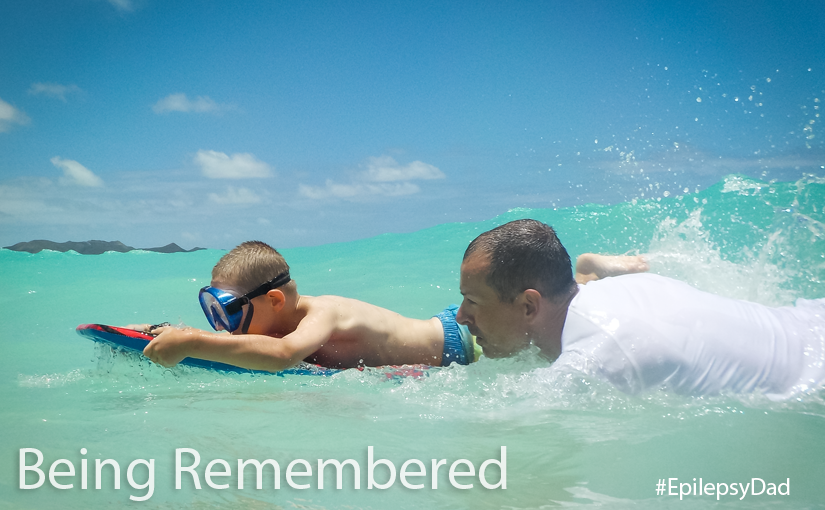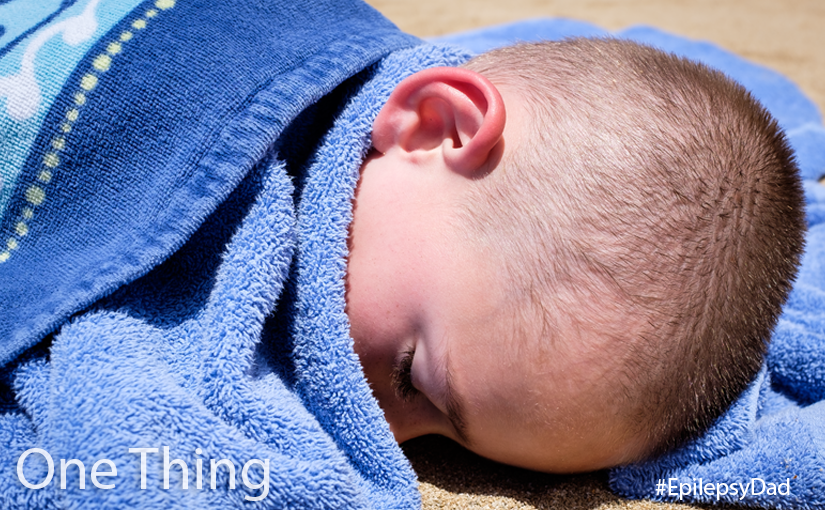My son stood on top of the first obstacle at the start of the race. He had just given an interview and talked about having seizures that had the crowd let out a collective “aww”. In his hand, he held the blowhorn that would signal the start of our wave. The emcee counted down then helped him push the button on the horn. It called out with its loud sound and the crowd cheered in response. The race had begun.
By the time I had climbed the first obstacle to reach my son, he was already on to the next one. He thought he needed to lead our wave for the entire race, so I sprinted to reach him and told him to slow down. “It’s a long race, buddy,” I said. “This is only the beginning.”
That is how my son approaches most things…head on and at full speed. It’s inspiring to see but also nerve-wracking. He’ll push himself beyond his limits without considering the consequences. For him, the consequence of physical exhaustion is seizures. My wife and I take on the role of the governor to regulate his unstoppable, unrelenting engine. That puts us in the middle of his desire to conquer the world and our desire to keep him safe. It’s an impossible balance and one that I rarely feel successful at. But I tried my best to pace him but also let him open up a little and have fun.
He tackled each obstacle with a determined attitude and a beaming smile. There were people who saw his interview that ran by to cheer him on. He would wave in response as he eyed the next challenge. Another person came up and told him that she had epilepsy, too and that it wouldn’t stop either of them. I was proud of him, for how he was tackling the race, for talking about his epilepsy, and for that smile.
If there were ever a metaphor for our life, it was that race. There will be obstacles that we need to face. There will be times that we need to be brave. There will be times we need to lean on and be grateful for the support around us. But there will also be fun and the sense of accomplishment that comes from doing things that are hard.
As he came down the slide on the last obstacle, I could see a huge smile on his face. He put his completion medal around his neck and told everyone how he made it through each obstacle. Then, on the way home, he said he wasn’t feeling good. He went straight in for a nap and I could tell his body was shutting down. During his nap, he had a cluster of seizures, more than he has had in a while. That was the gut-wrenching part where I questioned whether I let him push himself too hard. I know that uncertain feeling too well, and it’s heartbreaking.
As his body contorted against his will, I wondered whether it was worth it. The sense of accomplishment, the fun, and the experience. Was it worth what was happening to him? The lives of the people he touched when bravely stood on top of the first obstacle and told his story. The awareness he brought to epilepsy. The support he received from the people around him. Was that worth it?
I used to think that was an impossible question, but maybe the answer is simple. What makes it worth or not it isn’t measured by finishes or medals or seizures. What makes it worth it is that feeling that, in spite of his epilepsy, he can do amazing things. What makes it worth it is knowing that we are in this together, for the good and the bad. What makes it all worth it, in the long run, is filling his life with moments that make him smile.







